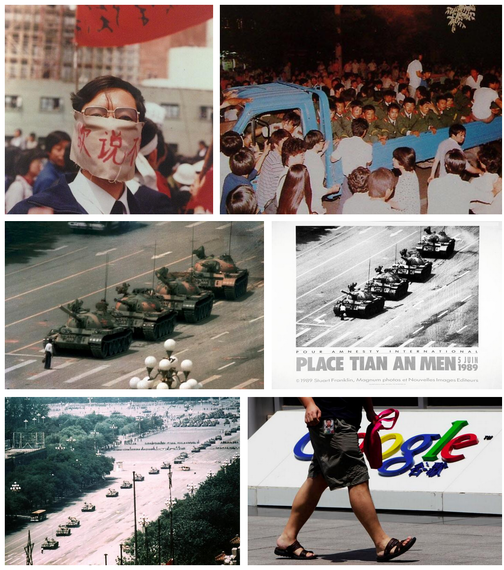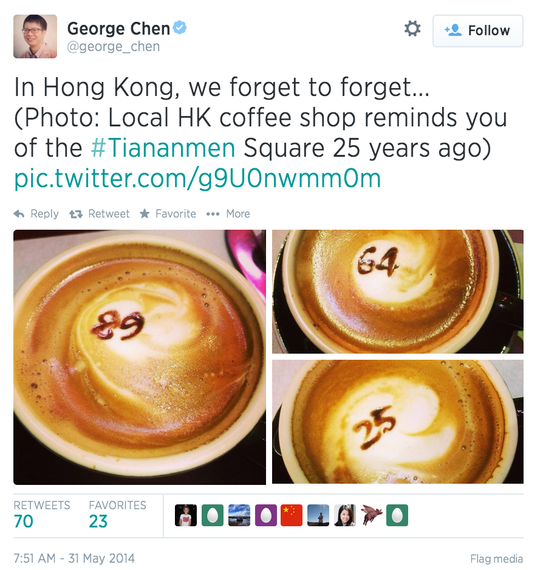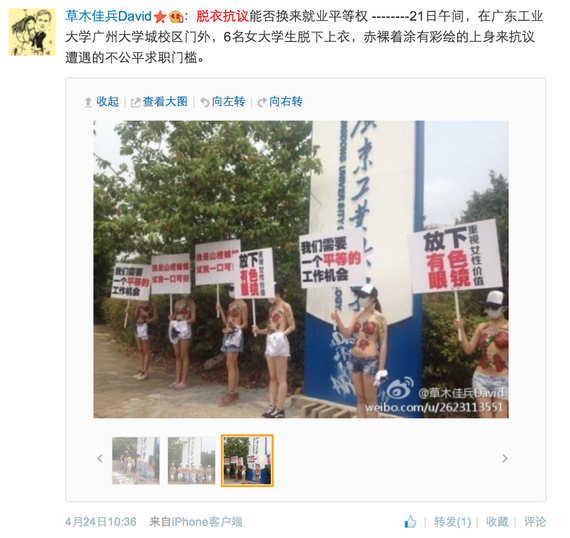June 4th marks the 25th anniversary of the violent crackdown that ended the student-lead protests that occupied Tiananmen Square for over six weeks in 1989. A recent popular book argues that the incident has largely been forgotten in China, as a result of "censorship of the media, falsification of history, and the amnesiac drug of shallow nationalism -- to silence those who dare to remember and deter those who want to inquire." Yet censorship and repression alone could not have prevented a reoccurrence of similar protests if the China's Communist Party (CCP) had not addressed some of the principal issues that precipitated the eruption of such massive demonstrations. Although the Tiananmen protests are remembered in the West for the pro-democratic overtones they took on in their waning later weeks, the initial motives prompting students to occupy the square were chiefly economic. Specifically, the protests began when students at Beijing's elite universities started to fear that a slowdown in growth and a reversal of economic reforms would deprive them of the incredible opportunities that the initial stages of the reform era had promised, especially for China's best and brightest.

The classic Tank Man photo from Tiananmen re-imagined with ducks is now also banned.
The demonstration erupted at the reform era's most dire economic juncture: after the austerity program had restricted economic freedoms and slowed growth, but before inflation had been brought under control. After a decade of successful economic reforms, a combination of price liberalizations and an overheating economy resulted in inflation of 25.5 percent in the first half of 1989. CCP hardliners implemented an austerity program that curtailed many newly granted economic freedoms and per capita growth rates slowed from 9.5 percent in 1998 to 2.5 percent in 1989. Although initially painful, the program eventually achieved its goal of curbing inflation. Economic liberalization returned and China would enjoy double-digit growth rates for much of the next 25 years.
Interviews with students from that time tell us that the flavor of the month on Beijing campuses was not democratic theory, but Hayek's classic criticism of planned economies, The Road to Serfdom. Even Hu Yaobang, whose death on April 15 prompted the first students to march to Tiananmen, was more a pragmatic economic reformer than a democratic crusader. Students, and the workers and peasants who joined them, certainly wanted political reforms, but this demand was in large part motivated by their call for economic reforms. The students who formed the nucleus of the protest were upset both by the inflation and by the state's solution to it; for them the lost economic opportunities were particularly painful. Students at top Chinese universities were poised to achieve things that would have been impossible for their parents. As near-certain big winners from economic liberalizations, these students had more to lose from the rolling back of economic reforms and the slowing of growth than almost any other group.
In the years since the protest, the CCP has managed to make good on the implicit promise that most Chinese will have a reasonable chance of moving up into the middle class and that their children, especially if they study hard and make it into a good university, will have even greater opportunities. In 2013, the CCP even adopted the slogan "Chinese Dream" which embodies this bargain on which the regime's legitimacy is perched.
A recent incident on the campus of the Guangdong University of Technology shows that the threat of unemployed gradates spilling out onto the streets is ever present. On April 21, six young women billing themselves as the "Hawthorne Sisters Student Alliance" arrived at the entrance of campus bearing signs and leaflets protesting against the sexual discrimination they, as recent college graduates, faced in interviews. They then removed their shirts to reveal nudity hidden by strategically painted Hawthorne berries and flowers. I have written about why this was such an effective tactic in China, but what echoes across a quarter century is their underlying grievance, a lack of good opportunities for China's elite university graduates.
None of this is to deny that increased control, monitoring, and censorship have also played a role in the CCP's continued dominance. But, for over a millennium education has been a highly respected and effective mode of cultural, economic, and political advancement in China. Students are considered to have something of a special status in China, which is one of the reasons they maintained their own section during the Trainmen protests and that their killing sent such a strong message. If the CCP can keep recent graduates gainfully employed despite slowing economic growth (though 7 percent is still impressive) the Party could see anther 25 years of prosperity. If University graduates begin to feel they are being left out of the Chinese Dream, it seems unlikely any amount of censorship or repression will be sufficient to stave of a 21st Century Tiananmen.



